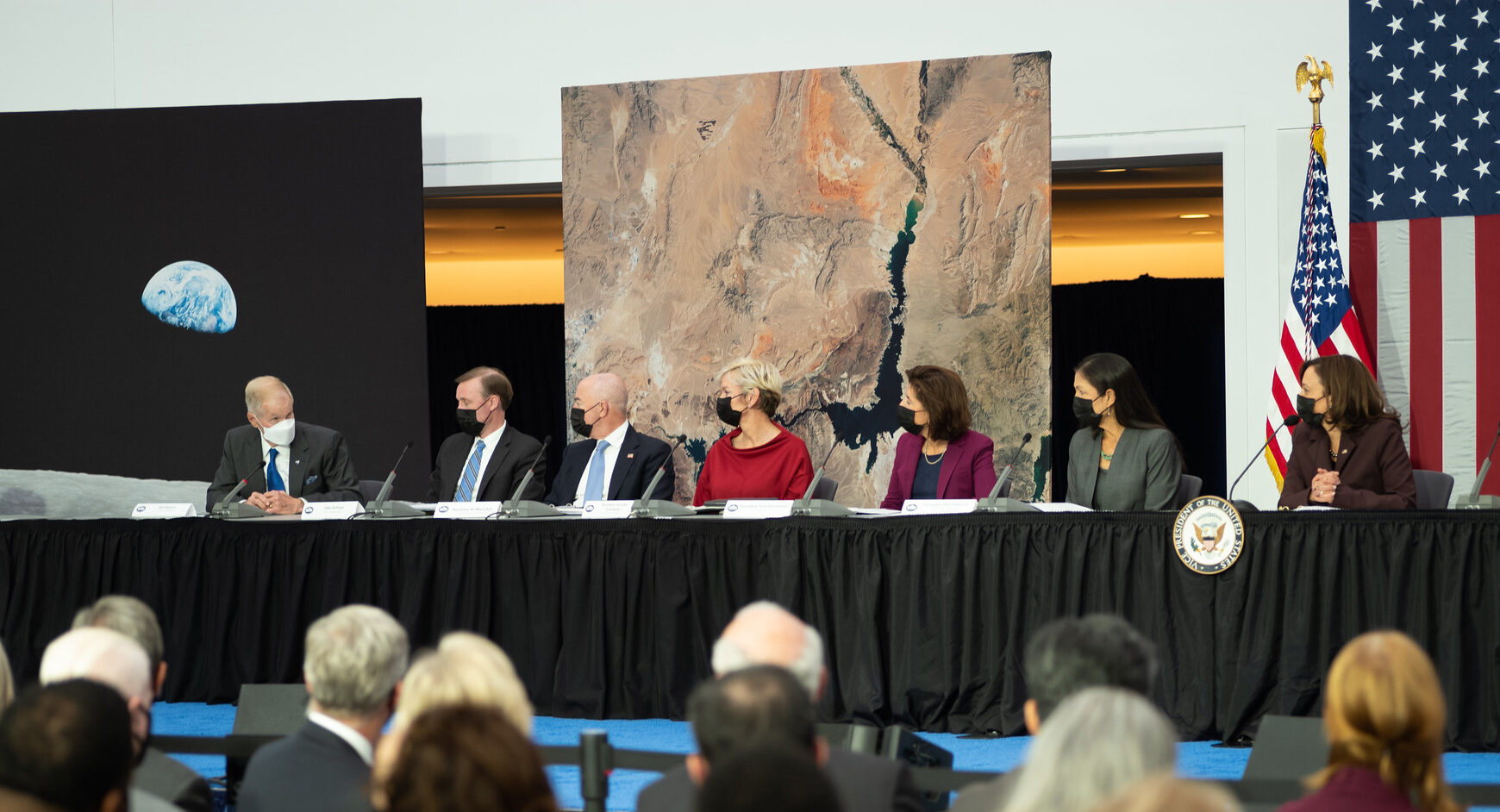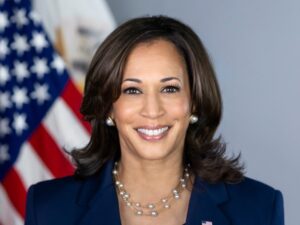Harris Leads Meeting of Newly Enlarged National Space Council, Demands Better Conduct from Space Nations
 NASA Administrator Bill Nelson, left, speaks during the first meeting of the National Space Council, Wed., Dec. 1, 2021, at the United States Institute of Peace in Washington. Chaired by Vice President Kamala Harris, seated second from the right in the photo, the council’s role is to advise the President regarding national space policy and strategy. Credit: NASA/Joel Kowsky
NASA Administrator Bill Nelson, left, speaks during the first meeting of the National Space Council, Wed., Dec. 1, 2021, at the United States Institute of Peace in Washington. Chaired by Vice President Kamala Harris, seated second from the right in the photo, the council’s role is to advise the President regarding national space policy and strategy. Credit: NASA/Joel Kowsky 
Credit: White House Photo
By Tom Roeder
troeder@SpaceFoundation.org
Vice President Kamala Harris opened the first meeting of the reconstructed National Space Council on Wednesday with calls to make climate data from satellites more available, grow the aerospace workforce by bolstering educational opportunities, and increase international cooperation with new treaties to govern conduct in orbit.
Earlier Wednesday, President Joe Biden issued an executive order growing the council with secretaries of Labor, Education, Interior, and Agriculture getting a seat at the table along with Gina McCarthy, Biden’s top climate adviser. Harris said the enlarged council must help determine how U.S. leaders will respond to a Russian antisatellite weapon test last month that turned an aging satellite from that nation into a cloud that the Pentagon has said includes 1,500 pieces of debris.
“We must reaffirm, yes, the rights of all nations,” Harris told the council. “And we must demand responsibility from all spacefaring nations.”
America’s Space Council got its start during the Kennedy years and was first led by Vice President Lyndon Johnson. The Council was disbanded as the Cold War ebbed and hadn’t met for years before it was recreated by President Donald Trump, who tabbed Vice President Mike Pence to lead it.
The council that met Wednesday includes new leaders who will take up key focus areas in space for the Biden administration. One new council member, Agriculture Secretary Tom Vilsack, highlighted the value of space technology in improving farming practices that generate bigger harvests while blunting the impact of agriculture on climate change.
“It will allow them to grow more with less land, less water, less inputs and, obviously, fewer greenhouse gas emissions,” he said.
Another new Space Council member, Education Secretary Miguel Cardona, pledged his agency will work with schools to help train more workers for space firms.
“Only 50% of our high schools across the country offer calculus, and that number drops to 38% for high schools with high enrollments of Black and Latino students,” Cardona said. “That’s unacceptable.”
While Biden brought more federal agencies into the space panel, he retained key provisions of old versions of the council, including a user’s advisory group of industry and academic leaders who will help advise its decisions.
The head of the user group, retired Navy Adm. James Ellis, who serves on the board of defense giant Lockheed Martin, said adding the Department of Education to the council panel is something industry leaders had pushed.
“The last few years have brought a new energy and new vitality to the space community,” said Ellis, a Space Foundation director emeritus.
While its decisions aren’t binding on Biden or Congress, the Space Council plays two key advisory roles: It is the body that generates space policy recommendations that can eventually become regulations, laws or treaties. The council also advises the White House on federal space spending, making it a big player in budget debates.
Tom Roeder is a senior data analyst and editor for Space Foundation.